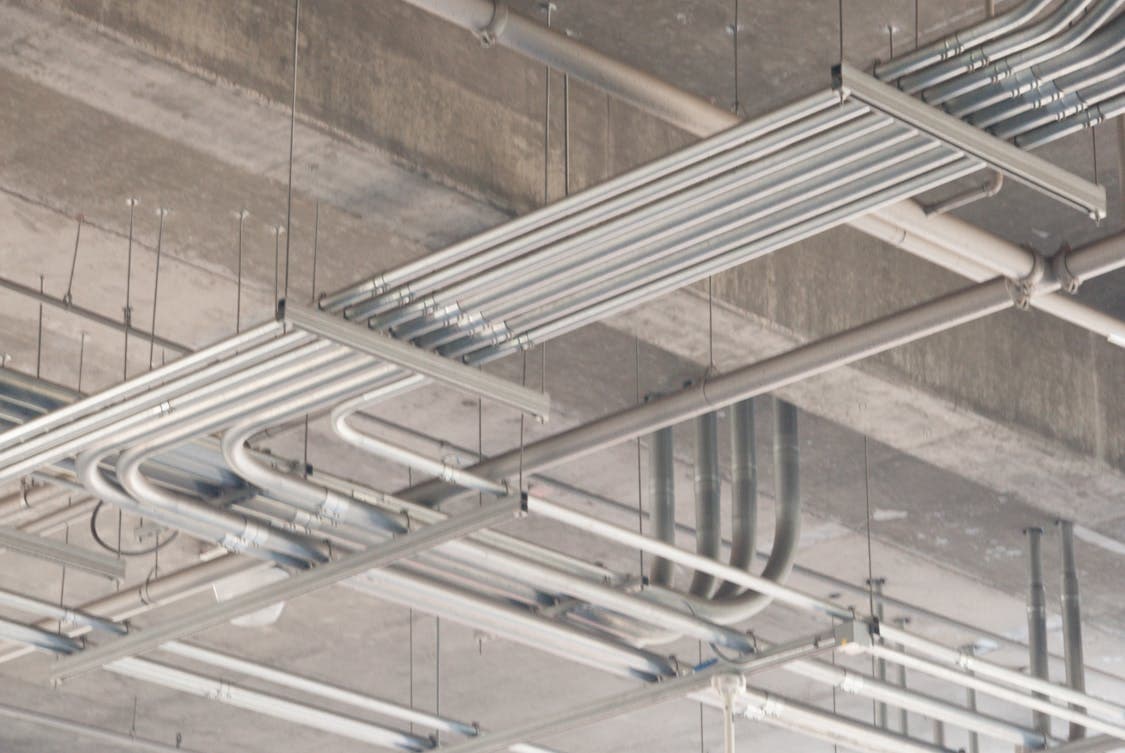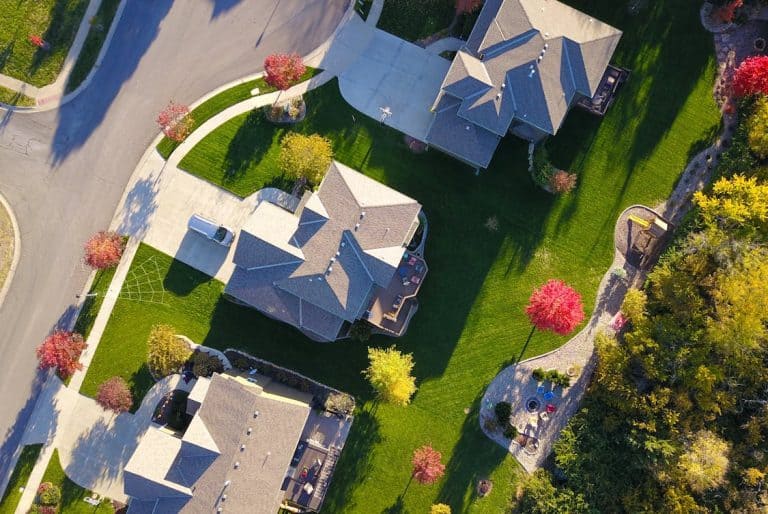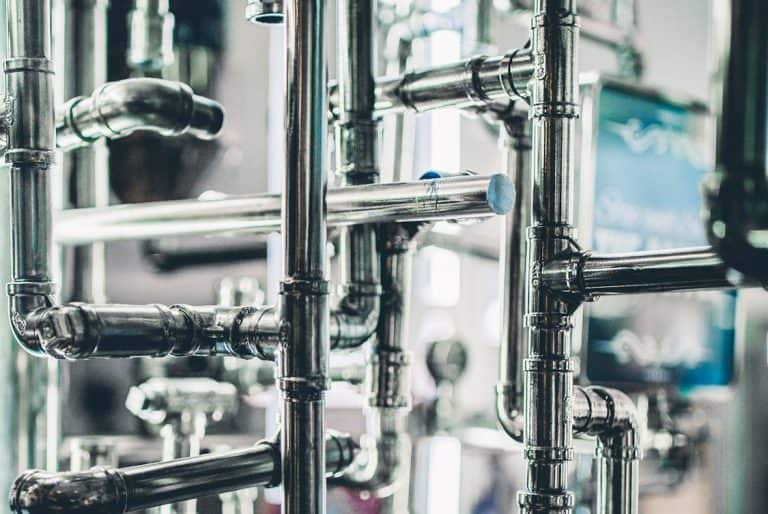There are a few things homeowners can do to prevent heating leaks. They can conduct regular visual inspections, monitor their system’s performance and make sure to flush out their system periodically.
Corrosion and wear, faulty or damaged seals, cracked heat exchangers, loose pipe fittings, and excessive system pressure can all cause a home’s heating system to leak.
Check the Pressure
Most heating systems have a pressure gauge that is found on or near the boiler. Ideally, the pressure will be between one and two bars when the system is cold. Checking the pressure will help to prevent leaks and other problems. Look at the gauge and see what the current reading is – it should be within the green zone. If it is below this or in the red zone, call a professional to repressurize the system.
It is possible that someone has responded to low pressure by adding water through the filling loop (which consists of two valves). This can cause the pressure to rise and leaks to occur. Make sure that these valves are closed if this is the case.
Other reasons for leaks include worn or faulty seals. Valves and pump seals can be damaged by age and corrosion or weakened by chemicals. If left unaddressed, they can lead to energy waste and costly repairs. Replace any seals that are worn or leaking to help reduce the risk of leaks.
Keeping the area around your boiler clear can also help to reduce the risk of a fire. It is important to keep this area clear so that nothing can be stored in close proximity to the system, such as boxes, toys and other items. This will help to reduce the risk of fire, which can be caused by hot water escaping from the heating system and burning anything nearby.
A faulty pressure relief valve can also lead to problems with the pressure in your system. The valve is designed to release excess pressure when it becomes too high – this will help to prevent damage to the system. If the valve is faulty, it may not open and the pressure in your system will continue to rise until it reaches dangerous levels and causes damage.
Call a professional to inspect your boiler and heating system at least once a year. They will be able to identify potential issues before they become serious problems that require expensive repairs. This maintenance is a great way to prevent carbon monoxide leaks and other costly problems that can be caused by excessive pressure in your heating system. For all your plumbing and heating concerns, SCS Plumbing and Heating offers expert solutions to ensure your home stays comfortable and functional. Their team is known for its fast response times and reliable service, so you can rest assured your systems are in good hands.
Install a Drain Pan
A drain pan serves the dual purpose of containing and preventing water leaks. The shallow tray sits under the water heater, and a pipe connects it to the drainage system so that any condensation can escape from there and not flood the home. This simple but effective device is a key component in any cooling system, and it is important that homeowners keep their eye out for signs that the pan is starting to wear.
Leaks can develop in many ways, including from corrosion and wear, cracked heat exchangers, loose or damaged piping fittings, excessive system pressure, leaking valves, faulty pump seals, and other issues. Detecting these problems early can help prevent expensive repairs and may also mitigate the impact on indoor air quality.
In addition to ensuring that the AC drain pan is functioning properly, regular inspections should focus on other aspects of the system. This includes checking refrigerant levels, inspecting electrical connections, and making sure the drain pipe is clear. While some of these tasks can be handled by homeowners, it is always a good idea to have an HVAC professional take a closer look at the system as well.
If you see a sign of a problem with your system, it is important to act quickly before the situation worsens. Shut off the unit using the shut-off switch located near the coil (looks like a light switch) or by turning it off at the breaker box. Clean up any water that has collected as soon as possible to minimize the risk of mold growth and structural damage.
A well-functioning heating system is crucial for ensuring a comfortable and healthy living environment. It is not only the foundation for regulating temperature and controlling humidity levels but also plays an essential role in improving indoor air quality by filtering pollutants and managing moisture. While leaks can develop from many reasons, including faulty components, proper maintenance and regular inspections can significantly reduce the risk of these problems.
Check the Radiators
The radiators are a key component of the heating system and can sometimes develop leaks and other problems. Taking steps to prevent these problems can keep your home warm and comfortable while saving on energy costs. Regular maintenance can help prevent a variety of issues, including trapped air and rust or debris. A professional inspection and cleaning can help identify any potential issues and provide recommendations on how to resolve them.
If your radiators are not heating up, check the temperature in each room with the boiler turned off. You can also check for signs of leakage, such as a brown stain or water spots on the walls. If you find a problem, it is best to call in a plumber as this will require professional attention.
Radiator valves can be a cause of poor heating, as they control the flow of water into the radiator. When they become blocked or stuck, this can lead to reduced heating and water leaking. Fortunately, this is usually an easy fix. To fix a stuck or blocked radiator valve, simply remove the thermostatic valve head and inspect the raised pin inside the valve. If it is stuck or seized, gently push down on the pin until it is free.
Leaking radiators can often be caused by corrosion or rust within the radiator itself. This can cause a buildup of debris, sludge or even mud, which can obstruct the flow of water and limit its efficiency. In some cases, a corroded radiator can even leak at the hose connections or anywhere else its parts are bolted to other pipes.
Alternatively, your radiator may be suffering from air pockets. This can be an issue if you have recently changed the settings on your central heating system or if the thermostat has been tampered with. If this is the case, it will need to be professionally checked and repaired by a qualified heating engineer.
Bleeding your radiators can help to clear out any air pockets and improve the heat distribution throughout your home. To bleed the radiator, locate the bleed valve (usually at the top of the radiator but on some designs it could be at the back). Fit the bleed key and open the valve by turning it 1/2 turn anti-clockwise – you should hear hissing of air being expelled. When the water begins to dribble out, close the bleed valve by turning it clockwise. Once this is done, it is important to re-check your boiler pressure to ensure that it is within the recommended range.
Call a Plumber
While preventative maintenance can go a long way in keeping heating systems healthy and leak-free, there are certain instances where it is best to call in the professionals. A professional has the skills, parts and tools to quickly and efficiently diagnose problems and complete repairs. Plus, their experience can help prevent future issues from developing.

Corrosion and wear can be a major culprit when it comes to leaking pipes in a home’s heating system. This type of damage typically happens due to a combination of factors including hard water buildup, temperature fluctuations and chemical exposure. Ultimately, corrosion or wear can cause metal components to crack and break which may lead to leaks.
Carbon monoxide leaks are another common and dangerous problem associated with a home’s furnace. A carbon monoxide alarm can provide early warning and will alert homeowners if CO levels rise in their home. This can save lives and reduce the risk of serious illness or even death due to carbon monoxide poisoning.
Another common source of leaking heat in a home is from exposed gaps around lights and fixtures. These types of gaps typically account for a large percentage of total heat loss in homes. It is important to close and seal these gaps to help keep warm air in and cold air out.
While some of the tips above can be used to help prevent leaks from occurring, it is also recommended to have a professional inspect the plumbing system at least once each year. This will allow for a quick diagnosis of potential problems and can help minimize any damage that may occur in the future.
If you have noticed that your energy bills are going up, it could be a sign that there is a leak in your home’s plumbing. Leaks can waste both energy and money, so it’s best to have them fixed as soon as possible. A professional can help you get your leaks under control and save money in the process. If you notice rust colored spots on your ceiling, it is also a good idea to call a plumber right away.









